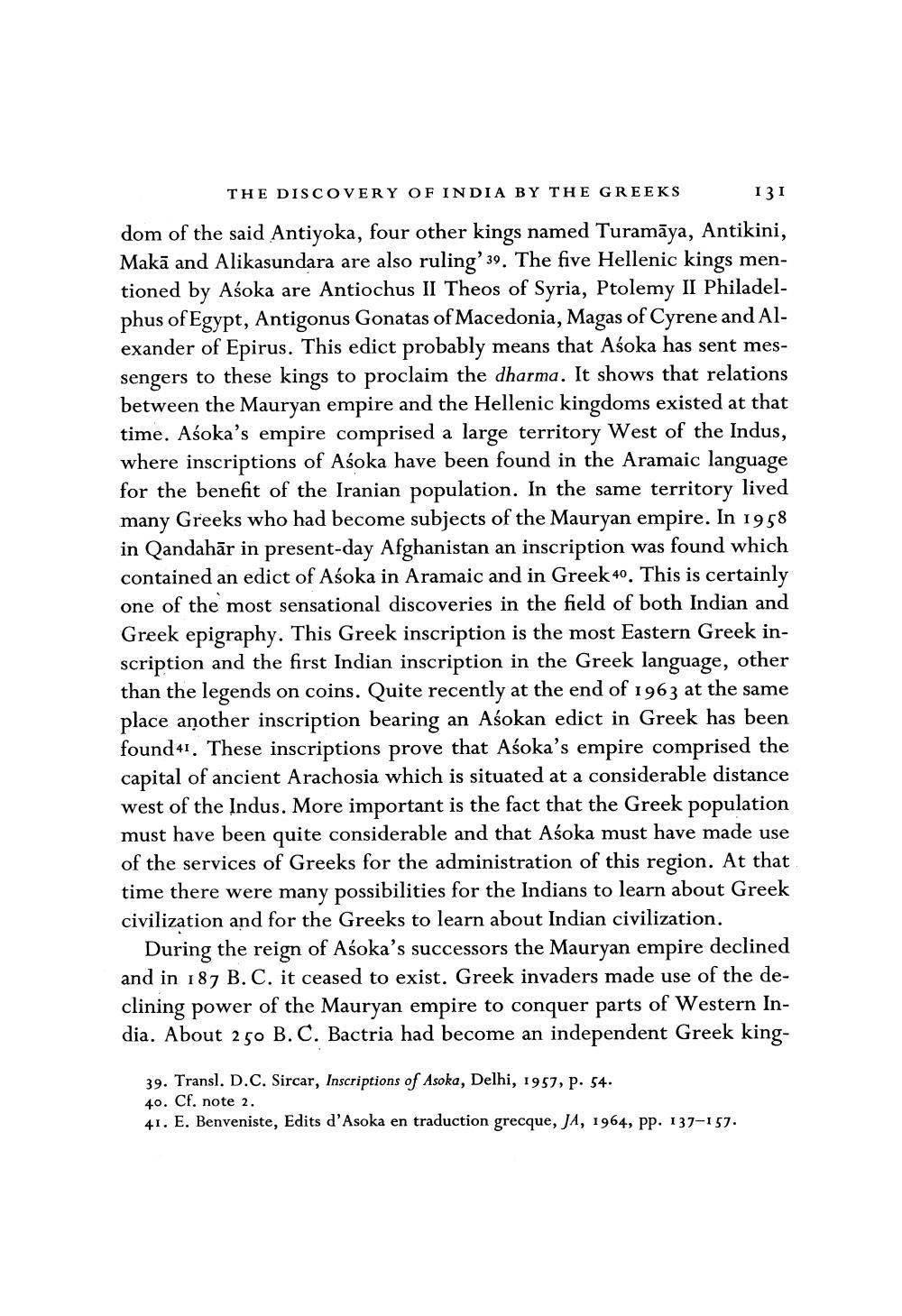________________
THE DISCOVERY OF INDIA BY THE GREEKS
dom of the said Antiyoka, four other kings named Turamāya, Antikini, Maka and Alikasundara are also ruling' 39. The five Hellenic kings mentioned by Aśoka are Antiochus II Theos of Syria, Ptolemy II Philadelphus of Egypt, Antigonus Gonatas of Macedonia, Magas of Cyrene and Alexander of Epirus. This edict probably means that Aśoka has sent messengers to these kings to proclaim the dharma. It shows that relations between the Mauryan empire and the Hellenic kingdoms existed at that time. Aśoka's empire comprised a large territory West of the Indus, where inscriptions of Asoka have been found in the Aramaic language for the benefit of the Iranian population. In the same territory lived many Greeks who had become subjects of the Mauryan empire. In 1958 in Qandahār in present-day Afghanistan an inscription was found which contained an edict of Aśoka in Aramaic and in Greek 40. This is certainly one of the most sensational discoveries in the field of both Indian and Greek epigraphy. This Greek inscription is the most Eastern Greek inscription and the first Indian inscription in the Greek language, other than the legends on coins. Quite recently at the end of 1963 at the same place another inscription bearing an Aśokan edict in Greek has been found 41. These inscriptions prove that Aśoka's empire comprised the capital of ancient Arachosia which is situated at a considerable distance west of the Indus. More important is the fact that the Greek population must have been quite considerable and that Aśoka must have made use of the services of Greeks for the administration of this region. At that time there were many possibilities for the Indians to learn about Greek civilization and for the Greeks to learn about Indian civilization.
131
During the reign of Aśoka's successors the Mauryan empire declined and in 187 B. C. it ceased to exist. Greek invaders made use of the declining power of the Mauryan empire to conquer parts of Western India. About 250 B. C. Bactria had become an independent Greek king
39. Transl. D.C. Sircar, Inscriptions of Asoka, Delhi, 1957, p. 54.
40. Cf. note 2.
41. E. Benveniste, Edits d'Asoka en traduction grecque, JA, 1964, pp. 137-157.




